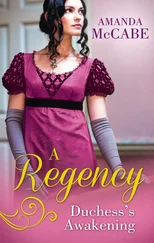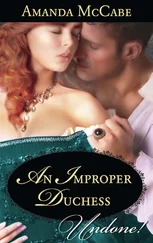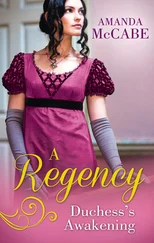Never was a story more proper for a novel than poor Lady Elizabeth Foster’s [wrote Mrs Dillon]. She is parted from her husband, but would you conceive any father with the income he has should talk of her living alone on such a scanty pittance as £300 a year! And this is the man who is ever talking of his love of hospitality and his desire to have his children about him! Might one not imagine that he would be oppos’d to a pretty young woman of her age living alone? It is incredible the cruelties that monster Foster made her undergo with him; her father knows it, owned him a villain, and yet, for fear she should fall on his hands again, tried first to persuade her to return to him. 11
To compound matters, the Earl managed to ‘forget’ Bess’s allowance whenever it came due.
Mrs Dillon’s horror at Bess’s situation – respectable but alone and without financial support – was understandable. Fanny Burney wrote The Wanderer to highlight the dreadful vulnerability of such women to pimps and exploitation. Their status demanded that appearances they could not afford should be maintained while the means to make an independent living were denied them. Bess’s newly inherited title made it impossible for her to find work either as a governess or a paid companion. 12 She could easily fall for a man who offered her a better life as his mistress, hence Mrs Dillon’s amazement at Lord Bristol’s lack of concern. Many years later Bess tried to defend her subsequent conduct to her son:
Pray remember, when you say that my enthusiasm has had a fair and well-shaped channel, that I was younger than you when I was without a guide; a wife and no husband, a mother and no children … by myself alone to steer through every peril that surrounds a young woman so situated; books, the arts, and a wish to be loved and approved … a proud determination to be my own letter of recommendation … with perhaps a manner that pleased, realised my projects, and gained me friends wherever I have been. 13
A wish to be loved and approved, and a manner that pleased: it was an irresistible combination to Georgiana. Bess’s desire to serve her new friend was greater than anything Georgiana had ever encountered before. Both the Devonshires were also deeply moved by her misfortunes. ‘If you see Lady Bristol,’ wrote Georgiana to her mother, ‘I wish you would say as from yourself that the D and I are very happy in seeing a great deal of Lady Erne and Lady Eliz., for that strange man Lord Bristol is, I have a notion, acting the strangest of parts by Lady Eliz and we thought perhaps if it was known we saw something of them it might make him ashamed of not doing something for her.’ 14
It never occurred to Georgiana that Bess’s untiring enthusiasm for her company might be inspired by her own poverty. The idea that her generosity made Bess a de facto paid companion never entered her mind. Bess was good with the Duke, too; indeed he appeared to like her almost as much, and Georgiana congratulated herself on discovering such a perfect friend. Bess realized that both Georgiana and the Duke were lonely – Georgiana obviously so, but the Duke suffered no less in his own way. Since Charlotte Spencer’s death he had been without steady female companionship. Georgiana was too caught up in her own life, and too much in awe of him to take the place of Charlotte. Bess could see that they both needed a confidante, a role that she was very happy to play, although it required her to act two quite different parts: with the Duke she was submissive and flirtatious; with Georgiana she was passionate and sensitive. Almost everyone except the Devonshires saw through Bess immediately. Much later James Hare gently tried to explain to Georgiana what all their friends had thought for many years. ‘I agree with you in every word you say of Ly Elizabeth, there cannot be a warmer, steadier, more disinterested friend: [but] she shews, perhaps, too great a distrust in her natural graces, for I never will be brought to say that she is not affected, tho’ I allow it is the most pardonable sort of affectation I ever met with, and is become quite natural.’ 15
The seventh of June was Georgiana’s twenty-fifth birthday and Lady Spencer used the occasion to denounce her daughter’s mode of living. ‘In your dangerous path of life you have almost unavoidably amassed a great deal of useless trash – gathered weeds instead of flowers,’ she wrote sternly. ‘You live so constantly in public you cannot live for your own soul.’ 16 The harshness of the letter stunned Georgiana, who replied that on her ‘nervous days’ she cried whenever she thought about it: ‘When the 7th of June gave you a Daughter, wild, unworthy, careless as she is, and of course, a cause of many fears, many troubles to you, yet it gave her to you, with a heart that longs and dares too, to think it shall make it up to you.’ 17 The following week she repeated her promise, pleading, ‘I could write it in my blood Dearest M.’ 18
Feeling hurt and rejected, Georgiana turned to the sympathetic and understanding Bess for comfort. She could confide in her new friend as she had done with Mary Graham, and without any of the inconvenience – Bess had no husband or home to call her away; there was no question of them being parted. The news that Bess had accompanied Georgiana and the Duke to Plympton camp for the annual military review alarmed Lady Spencer. She had no illusions about Bess, but she was astonished that both Georgiana and the Duke had fallen under her spell. She gathered from her daughter’s letters that the three were inseparable, sharing Plympton House together, passing their evenings reading Shakespeare aloud. Bess never seemed to leave Georgiana alone, nor was there any facet of Georgiana’s life closed off to her. Little realizing its bad effect, Bess wrote on Georgiana’s letters to Lady Spencer, addressing her as if she were an old friend and adding postscripts about her daughter’s health and good behaviour. Sometimes she wrote almost the whole body of the letter on the excuse that her friend was too tired to write. She was always deferential, but her familiarity with Georgiana grated on Lady Spencer. Her tone revealed a person desperate to make a permanent home for herself.
The harmonious threesome remained at Plympton until the end of September, when Bess developed a bad cough. Georgiana complained she was being very annoying, loudly insisting one minute that she was perfectly all right, and the next admitting to a troublesome cough for the past two years, ‘tho’ she considers all this very ridiculous, and says she is only a little nervous’. 19 Georgiana became anxious and full of self-doubt. On 30 September she wrote, ‘I did not go out as I was sulky and uneasy and locked myself up all morning.’ 20 She admitted she was taking sedatives again which made her groggy and prevented her from receiving friends. 21
Georgiana blamed her unhappiness on her infertility.
You accepted Zyllia [she wrote to Lady Spencer, referring to a play she had written about a girl who discovers that her best friend is her mother], and therefore I am going to open the foolish nonsense of my heart, to my friend – I am discontented with myself – I feel a sentiment something like uneasiness and envy at the accounts I receive of Lady George [Cavendish] and her grossesse. I did not mind it at all at first, but now that it draws near its event I feel a sensation at it that I hate myself for, and yet nobody can form more sincere and heartfelt vows than I do for her well-being – I should not feel this if it did not appear to me that there was a possibility of my being so, I am convinc’d could I master the lying in bed, could I lead a strengthening kind of life, and have a calm heart and mind for some time together that it would succeed – and strong as my wishes and persuasions are, so weak am I that I yield to things that hurt me, with my eyes open – you must direct and save me Dst M, for you only can. 22
Читать дальше












